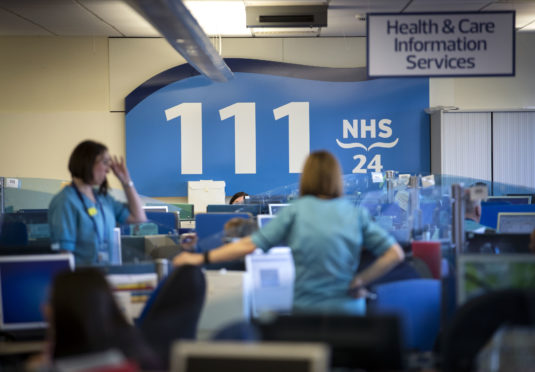
A fifth of Britons who reported at least one of the Covid-19 symptoms in the last week did not fully self-isolate in the days after, a survey suggests.
Some 12% of Britons surveyed by YouGov said they had experienced at least one of the common symptoms of Covid-19 in the previous seven days.
These include fever, dry cough, loss of taste or smell and shortness of breath.
When asked what action they took over the following days, around a fifth (21%) of those who had Covid-19 symptoms said they had only sometimes, rarely or never self-isolated.
Asked how easy or difficult they would expect to find self-isolating for seven days, if advised to in future, 17% said they thought it would be somewhat or very difficult.
But the vast majority, 95%, said they would be very or somewhat willing to do this in future if necessary.
YouGov is partnering with the Institute of Global Health Innovation (IGHI) at Imperial College London to look at how populations across the world are adhering to public health advice to tackle coronavirus.
Thirteen countries were included in the first phase of the study, including 1,650 respondents from the UK, and it will expand to 16 more parts of the world this week.
Reported testing in the UK was the lowest out of all the countries, with just 1% of respondents saying they had been tested, and 1% saying a member of their household had been tested.
The survey also found that Britons are washing their hands an average of 12 times a day but around one in seven are failing to clean often-touched household surfaces.
Around 15% said they had rarely or never cleaned doorknobs, toilets and taps inside their homes within the last seven days.
And more than a fifth (22%) said they only sometimes had done this.
Britons seem to be staying inside as advised, only leaving the house an average of 0.77 times a day, compared to the international average of 1.08 times.
British people came within two metres of an average of 4.4 people outside their immediate household in the past week, it found.
They washed their hands an average of 12.06 times a day, just over the international average.
And over 90% are regularly covering their noses and mouths when they cough or sneeze and avoiding social gatherings, crowded areas and using public transport.
The survey results will be available to public health bodies free of charge so they can assess what measures are working.
Dr David Nabarro, special envoy for coronavirus at the World Health Organisation (WHO) and IGHI co-director, said: “The knowledge offered by this resource will be immensely useful to countries across the globe as they plan their ongoing strategies to tackle this devastating pandemic.
“It’s imperative that government actions to manage this crisis are driven by evidence, and insights gathered by data such as these will be critical in furthering our understanding of how the outbreak – and populations’ responses – are evolving over time.”
Stephan Shakespeare, chief executive and co-founder of YouGov: “YouGov is in the privileged position of having over a hundred thousand people all over the world share their views and behaviours with us every day.
“With Covid-19 taking hold across the globe it is only right that we put this privilege to positive use.”
He added: “To help public health agencies’ response to the crisis across the globe we are providing them with data focusing on civic compliance free of charge. We hope that by helping those leading the charge against this disease in this way will make a difference.”

Enjoy the convenience of having The Sunday Post delivered as a digital ePaper straight to your smartphone, tablet or computer.
Subscribe for only £5.49 a month and enjoy all the benefits of the printed paper as a digital replica.
Subscribe